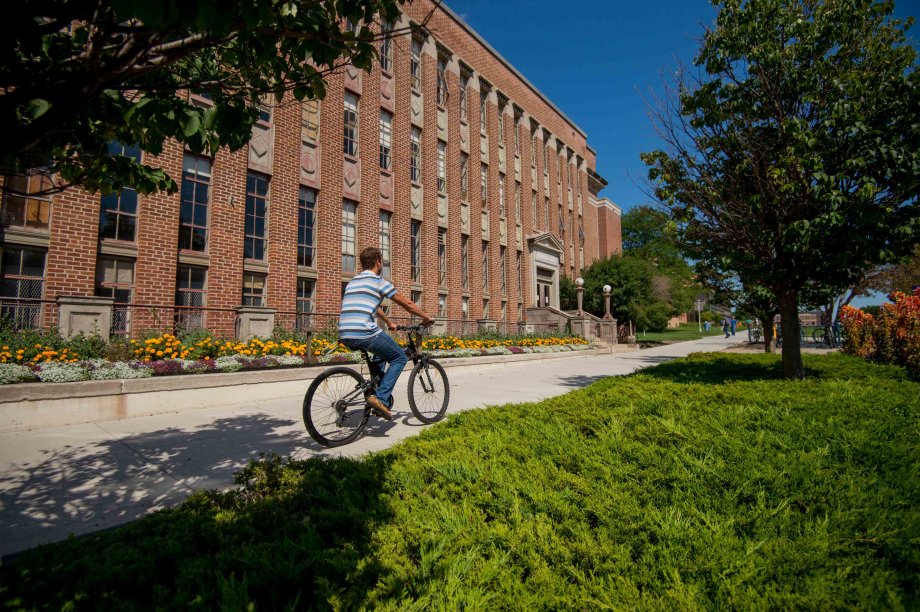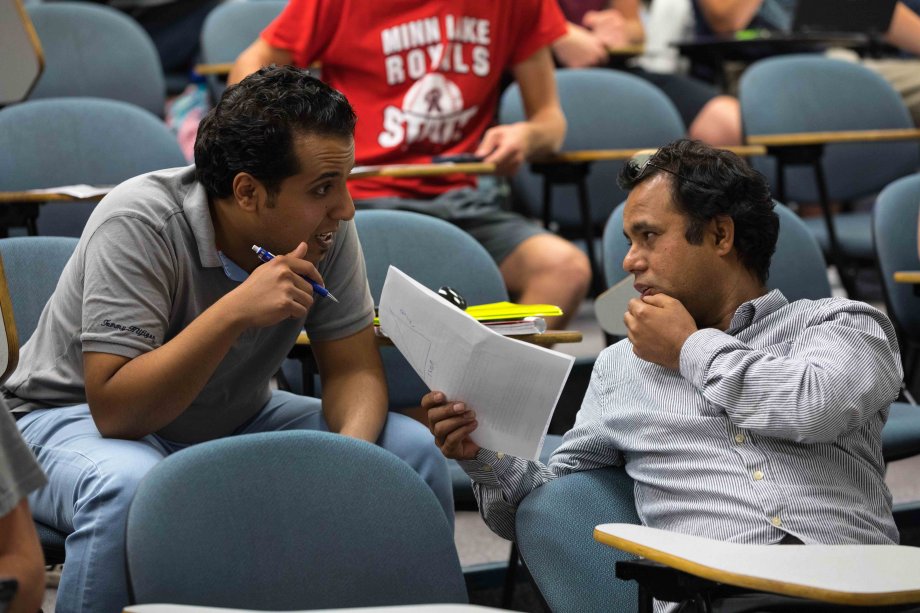Smoking and Tobacco-Free Policy Q&A
Why did South Dakota State University go smoke and tobacco-free in January 2018?
SDState is committed to providing a healthy and safe campus environment for its our students, faculty and staff. The smoking-and tobacco-free campus policy is an extension of any employee and student wellness initiatives designed to create a healthier and more productive campus community. There is a substantial body of medical research that demonstrates the damaging effects of tobacco to users and persons who experience second-hand smoke as a result of that use. Tobacco is the leading cause of preventable deaths, killing an estimated 443,000 annually (Health and Human Services, 2014), exposure to second hand smoke causes more than 50,000 deaths annually (Health and Human Service, 2014), and tobacco users are 33 percent more likely to be absent from work than non tobacco users (Weng,et al 2013). Today’s smokers are at higher risk of lung cancer due to changes in the chemical composition of cigarettes.(Health and Human Services, 2014) and the tobacco-free workplace is by far the norm and a smoke-free campus prepares students for this post diploma reality.
Is South Dakota State University the only SDBOR institution with a smoking and tobacco-free campus policy?
No. In fact, SDState is behind many of its peers in the nation, and all other Board of Regents institutions in not having regulations of tobacco use in outdoor spaces on campus. All BOR institutions prohibit smoking in campus buildings, some prohibit tobacco use of any kind in all indoor and outdoor spaces controlled by campus. Dakota State University and South Dakota School of Mines and Technology both have fully tobacco-free (cigarettes, cigars, pipes, e-cigarettes, incense, etc.) campuses and also prohibit the sale or free distribution of tobacco, or tobacco advertising in university-sponsored publications, activities or venues. At this time Black Hills State University, Northern State University and University of South Dakota each permit tobacco use in perimeter parking lots.
Who is responsible for developing the smoking and tobacco-free campus policy?
The policy was developed in collaboration between the Miller Wellness Center and SDState Health, a consortium of health science programs at the university, student health and counseling services and health system and community partners committed to innovations in education, practice and research across health professions and health-related programs. The vision of SDState Health is to develop and foster a culture of health and wellness across the university and throughout the communities we serve through meaningful collaboration. The policy was vetted by numerous campus groups during the 2016-17 academic year, and was provide to the entire campus for comment during the fall 2017 semester.

What is prohibited on campus?
The policy prohibits any item made of tobacco intended for human consumption, including cigarettes, cigars, pipe tobacco and smokeless tobacco. Tobacco products also include vapor-based products. The American Medical Association, American Cancer Society, American Heart Association and the American Lung Association all recommend that smoke-free laws and policies prohibit vapor product.
Are e-cigarettes included?
Yes, the policy prohibits all forms of tobacco and nicotine delivery devices that have not been approved by the FDA for cessation.
When did the policy go into effect and where will it be enforced?
The policy went into effect Jan. 1, 2018. Smoking and the use of tobacco product and vapor product are prohibited on university property.
Does the policy apply to everyone?
The policy applies to university students, faculty, staff, as well as visitors and vendors to all university property, regardless of location.
What areas does the tobacco free policy cover?
Smoking and the use of tobacco products and vapor products are prohibited on university property. This includes but is not limited to parking lots, athletic fields and courts, playgrounds, facilities, vehicles and any other indoor and outdoor areas under the control of the University, whether owned or leased, including inside any vehicle or private conveyance located on university property.

Will the university allow any tobacco-related advertising?
No advertising or sponsorship related to smoking, tobacco product or vapor product shall be permitted on university property, at university-sponsored events or in publications produced by the university, with the exception of advertising in a newspaper or magazine that is not produced by the university and which is lawfully sold, bought or distributed on university property.
Are there any exceptions to this policy?
Exceptions to this policy must be approved by the president’s designated university official in advance of use. Exceptions may occur in controlled laboratory research or other mission-related controlled activities and must also be preceded by reasonable advance notice to the public, educational or research group. Specific activities used in connection with the practice of cultural activities by American Indians that are in accordance with the American Indian Religious Freedom Act (42 U.S.C. sections 1996 and 1996a) handled in accordance with university protocols are exempt from this policy.
Is the university forcing people to stop using tobacco products?
No. The policy does not allow for the use of tobacco products on university property. The university will support students and employees who are seeking to quit through cessation programs offered through the state and on campus. The University Miller Wellness Center will provide no-cost access to counselors specially certified in tobacco cessation and is available to assist students or employees who wish to quit using tobacco products or smoking, if requested.
Resources for employees seeking to quit include:
- State of South Dakota QuitLine or 1‐866‐737‐8487 (1‐866‐SD‐Quits)
- SD Employee Assistance Program (Employer code: SOUTHDAKOTA) or 1‐800‐713‐6288
- SDSTATE Tobacco Cessation Services: 605‐688‐4157
How will the policy be enforced?
Students who refuse to comply with this policy should be reported to the dean of students, or designee, who will follow up with the student regarding the policy and tobacco-use cessation support resources available through the campus. Continuing violations will result in appropriate disciplinary action in accordance with the Student Conduct Code.
Employees who refuse to comply with this policy should be reported to their immediate supervisor, who will follow up with the employee regarding the policy. Continuing violations will result in appropriate disciplinary action in accordance with the policy applicable to the employee’s status at the university.
The success of this policy will depend on the thoughtfulness, consideration and cooperation of tobacco users and nontobacco users. All students, faculty and staff share in the responsibility for adhering to and enforcing this policy. All staff, faculty, students, visitors, contractors and other individuals on the SDState campus who are in violation of the policy should be reminded of the policy and asked to comply by discarding the tobacco product.

Can students and employees smoke in their own vehicle?
Not while the vehicle is located on university property. Once a privately owned vehicle is located outside of university property, the vehicle is exempt from this policy. See Smoking and Tobacco-Free Campus Policy 6:6, Section 2 paragraph “d” for additional details.
How will visitors be informed about the tobacco-free campus?
Signage will be prominently displayed at all entrances to the university. Areas like admissions, athletics and other units that welcome visitors to campus will want to address the policy with their customers prior to or when they attend campus events.
Is the university crossing a line in trying to dictate people's choices?
Tobacco and smoking is harmful to people's health, although the use of tobacco is a personal choice. Tobacco policies in a workplace and living/learning environment are not uncommon throughout the country. Court rulings maintain that tobacco users do not have the legal right to expose others to secondhand smoke, which is considered a Class A carcinogen. Additionally, people who smoke are not entitled to protection against discrimination as "addicts" or as "disabled persons." There is no legal right to smoke. Prohibiting smoking on campus provides access to clean, smoke-free air while allowing adults who smoke to continue to do so off-campus. This decision supports the rights and privileges of both smokers and nonsmokers.

